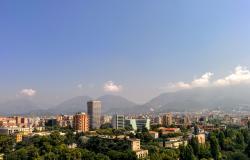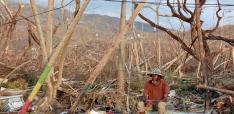The EU-Albanian Accession Talks: Renewed Hope or yet Another Symbolic Gesture?

Andi Hoxhaj explores whether the EU-Albanian accession talks can really have substance (and if they ever have) in the midst of the ongoing coronavirus epidemic.
On 24 March 2020, the foreign ministers of the 27 European Union member states reached a consensus to start accession negotiations with North Macedonia and Albania. The news to open accession talks with the two countries may have failed to make it to the news cycles dominated by the spread of Covid-19 across the globe, it was nonetheless welcomed by both the countries. For North Macedonia there are no conditions attached and talks are anticipated to start in the near future. However, for Albania, the member states have set 15 pre-conditions, which are to be fulfilled before they officially open accession talks. For the EU to signal the green light for accession talks in the midst of the largest public health crisis in a generation shows this is more of a symbolic gesture, than a genuine attempt to pave the way for the two states. There is precedence for this as we saw in 2012, when the EU launched accession talks with Montenegro in the middle of the eurozone crisis.
The revised EU enlargement policy and unblocking the French veto
Albania has been a candidate for EU membership since 2014, and North Macedonia since 2005, the EU Commission in its annual progress reports has recommended to the member states to open accession talks with both the countries numerous times over the years. However, member states have not agreed politically to open accession talks even though the EU Commission has suggested in its reports that both countries have met the conditions. In October 2019, it all boiled over when France strongly opposed opening accession talks with North Macedonia and Albania.
 President Macron made two arguments for his decision; the EU first needs to strengthen its existing policies and institutions before adding new members, and; second, the EU enlargement process is itself flawed and once a country becomes a member of the EU there are no adequate mechanisms to address any subsequent backsliding of EU democratic standards, such as with Hungary. These are valid arguments when one considers the backsliding of liberal democratic standards in some member states, and the EU does require reform to bolster the eurozone and its decision-making process in responding more swiftly to crises.
President Macron made two arguments for his decision; the EU first needs to strengthen its existing policies and institutions before adding new members, and; second, the EU enlargement process is itself flawed and once a country becomes a member of the EU there are no adequate mechanisms to address any subsequent backsliding of EU democratic standards, such as with Hungary. These are valid arguments when one considers the backsliding of liberal democratic standards in some member states, and the EU does require reform to bolster the eurozone and its decision-making process in responding more swiftly to crises.
France after being heavily criticised in October 2019 for damaging the credibility of the EU as a geopolitical power in the Western Balkans after it blocked Albania and North Macedonia, issued a proposal on how to reform the EU accession process. The ‘French non-paper: Reversibility needed in new enlargement strategy’, released in November 2019, suggested the process should not be based on opening of new chapters (currently 35 policy chapters), but through a seven phase process. The phases were: (i) rule of law and fundamental rights; (ii) education and research; (iii) employment and social affairs; (iv) financial affairs; (v) the single market, agriculture, and fish; (vi) foreign affairs; and (vii) "others" which would form coherent blocs of policies. After the candidates graduated from each phase, as a reward they could have entry to Eurojust, Horizon 2020 science programme, the EU banking union, and potential access to the EU’s customs union and the single market. The fulfilment of the sixth phase would lead to full EU membership.
The EU Commission revised the enlargement policy and on 5 February 2020, published its new proposal for reforming the enlargement process and its methodology, incorporating the major suggestions proposed by France. The new enlargement policy's main change is that there will be more of a focus on fundamental reforms to the rule of law, fighting corruption, the economy, and properly functioning democratic institutions – therefore, ‘negotiations on the fundamentals’ will be opened first and closed last. However, the main changes to the process are that now the candidate country would not open negotiating chapters individually as per the previous process that Serbia and Montenegro are undergoing, but they would be organised into six thematic clusters; (i) Fundamentals; (ii) Internal market; (iii) Competitiveness and inclusive growth; (iv) Green agenda and sustainable connectivity; (v) Resources, agriculture, and cohesion; and (vi) External relations. This framework will now be applicable to Albania and North Macedonia.
Furthermore, the EU Commission in line with the French proposal is suggesting more tangible rewards to candidates, such as integrating them into certain EU policy areas, possibly entering into the banking union, educational programme or participating in the European arrest warrant, and more direct funding and investments into their economy. North Macedonia that has no condition to open accession talks could learn in May 2020 at the EU-Western Balkans Summit when they will be invited to officially open accession talks. Whereas, Albania’s situation is more complex and difficult.
The 15 pre-accession conditions for Albania
Albania first has to go through a two-stage process for the 15 pre-conditions, which must be fulfilled by the 1st and 2nd accession conferences. These conditions are based largely on a resolution that the German Parliament adopted in September 2019. In addition to the 9 conditions set by the Bundestag, another 6 conditions were added to accommodate some of France, Greece, and the Netherlands' concerns.
The 6 pre-conditions that Albania needs to fulfil in the first accession conferences:
- Reforming and passing Albanian electoral law – must be in line with the OSCE recommendations, and more transparency in party and campaign financing.
- Further implementation of the ongoing judicial reform and functioning of the Constitutional Court and the Supreme Court. Furthermore, the opinions of the Venice Commission for the constitutional court must be implemented.
- Functioning of the Anti-Corruption Prosecutor's Office (SPAK) and establishing the National Bureau of Investigation (NBI).
- Stepping up the fight against corruption, organised crime, and money laundering.
- Control and sanction the phenomenon of unfounded asylum applications and ensure that it takes the rejected asylum seekers back swiftly.
- Amending the media law and safeguarding the freedom of the press, especially the so-called “Anti-Defamation” package in line with the recommendations and opinion of the Venice Commission.
Before the second accession conference, Albania must meet the additional 9 pre-conditions:
- Criminal proceedings must start for judges and prosecutors that failed the vetting process, and indictments must follow.
- A criminal investigation should start for those accused of buying votes and strengthening of the election fraud mechanisms.
- Track record in fighting corruption and organised crime at all levels, and a record for proceedings against high-ranking officials and politicians.
- Further tangible progress in administrative reform.
- Implementation of the new Albanian electoral law for the upcoming 2021 parliamentary election.
- The Constitutional Court should issue a final decision on the legality and validity of the local elections of 30 June 2019.
- Implementation of the 2017 legislation on the protection of national minorities.
- Adopting a census law that is in line with the recommendations of the Council of Europe.
- Improving the property rights law, and the process of registering of properties.
Attaching these 15 pre-conditions was the only way for sceptical member states to give their political approval to open accession talks with Albania. These pre-conditions address legitimate areas of concern, but the accession process in itself is about meeting criteria and conditions. Therefore, it is both unnecessary and unachievable to add these pre-conditions because some of these conditions will require a longer period to be fulfilled – for example ‘investigating and prosecuting corruption and organised crime at the highest level, especially in politicians’. Even if there is a strong political will to tackle corruption and organised crime, quick results in this area cannot be demonstrated due to the nature and complexity of these investigations.
Furthermore, the language used in these pre-conditions is vague and can be open to interpretation as to how to measure the progress, i.e. how many politicians or judges and prosecutors should be imprisoned for it to be accepted by EU member states as a credible track record. Also, these pre-conditions do overlap with issues that will be addressed in the first cluster, where it will be evaluated more thoroughly by the EU. The member states by attaching these pre-conditions could find these measures counterproductive and not helpful to the domestic discourse in accession states. Although both the government and the opposition have suggested that they plan to work closely to fulfil these pre-conditions as soon as possible, Albania has two major crises to handle and a 2021 parliamentary election within the span of a year.
First, Albania has to deal with the increasing pressure of the coronavirus and the death toll that is surging every day. No one can predict at this point what kind of situation the EU will be in after the coronavirus crisis – either politically or economically, as many heavily indebted countries in Europe may have to deal with a social and economic collapse on a scale never seen before.
Second, in November 2019 just weeks after EU leaders blocked opening accession talks, Albania was hit by a 6.4-magnitude earthquake where more than 50 people were killed and more than 3,000 injured, and over 14,000 buildings were ruined. The domestic focus since November has been in rebuilding the houses damaged and making sure that those who were hit by the earthquake are accommodated within a year.
Third, Albania is set for a general election in 2021 and as usual in an election year, all parties will try to find new issues in which to blame each other in the campaign. Both members of the government and the opposition will use these pre-conditions as a pretext to move the public conversation away from some of the most pressing issues that Albania is currently facing, such as mass migration, brain drain, high unemployment, and that the coronavirus crisis is exposing an underfinanced and understaffed healthcare system. Neither side will accept any accountability for what they both have contributed to over the years of mismanagement by pivoting the entire pre-election discourse to these pre-conditions. Therefore, in my view, it is highly unlikely that these pre-conditions would be fulfilled before June 2021 or that the EU would actually open accession talk until the end of 2021.
There is also the matter of electoral politics playing out in members states with parliamentary election in the Netherlands in March 2021, in Germany in September 2021, and the French presidential election in April 2022. As has been the case in the past, the Albanian membership could become a punching bag for the Eurosceptics and member states could block or at least postpone Albania’s bid until after their respective elections.
On top of all this, the pre-conditions are vague in their language, and can leave plenty of room for interpretation and could potentially lead to new misunderstandings of the complexity of issues which Albania cannot address on its own, either politically or with its limited resources.
Islamophobia: the underlying policy for postponements
There is also a division among some member states of a fear in welcoming countries into the EU with a Muslim population such as Albania, Kosovo, Bosnia and Herzegovina, and also Northern Macedonia, even though the whole population of the Western Balkans region including also Serbia and Montenegro is approximately 18 million.
These divisions between the member states are unlikely to change even under the 2020 enlargement framework. This needs to be honestly acknowledged, and excuses used in blaming the candidate states for their lack of progress is not conducive to the EU’s aims if they have already met the criteria set out by the EU Commission – as is the case with Albania, that adopted a major judicial reform in 2016 as a pre-request by the EU to open accession talks or holding back Kosovo’s visa liberalisation. This is not to say that Albania does not have a long way to go to meet the EU standards for a functional democracy – but it can be argued that some of these pre-conditions and constant delays, or addition of new conditions along the way, betray an underlying fear that member states harbour towards Muslim majority countries and demonstrates that they do not want them in the EU.
I must clarify that having a country with a majority Muslim population is not the main fear given the small number of its populations, but it is an important element that is a major barrier to overcome. In other words, it’s nearly impossible to win over some member states, no matter how many pre-conditions and conditions are satisfied. Even though Albania is a clear example of coexistence and religious tolerance according to the UN, and is considered by many scholars to be the last beacon of religious tolerance in Europe – yet, this is not taken into account. I could be wrong, but looking at some of the member states' political attitudes towards the Western Balkans in the past, it is not difficult to spot an undercurrent of Islamophobia and fear in some of the policy decisions.
The European Economic Area as an option for Albania in the meantime
In terms of timeline alone, Albania has a long way to go towards EU membership. To get an understanding of the timeline ahead, we can look at Montenegro, that started its accession talks in 2012. The EU is considering 2025 as a potential date for Montenegro to join (13 years after it opened accession talks) in accordance with its EU–Western Balkans 2018 strategy. However, despite the massive time lapse, the 2025 entry date could be delayed further because according to the EU Commission’s assessments, Montenegro made no progress in 23 chapters; advanced slightly in 9; and backslid in 1, between 2015 and 2019.
Therefore, even if Albania opens accession talks in 2021 with the promise of full membership by 2034/35, it’s hard to offer any hopes to Albanian population, especially the youth, 60% of which wants to leave the country. Let’s also not forget the restrictions on the free movement that may apply to workers from the member states for a transitional period of up to 7 years after they join the EU – in other words even if Albania joins the EU in 2034, Albanian workers and businesses won’t be able to work freely in the EU until 2041, which is about 50 years after the collapse of the most brutal form of communism in Europe.
Albania also has another major issue, which should be taken more seriously in regards to demography. After the collapse of communism in 1990, its population was 3.28 million and it is projected by the UN that by 2050 it will be 2.5 million; 1.4 million Albanians have emigrated since 1990, largely due to a lack of jobs and economic prosperity. Furthermore, the poverty rate still holds at one-third of the population, and even though the Albanian poverty rate is steadily declining from 33.9% in 2016 to an estimated 29.5% in 2020, after the coronavirus crisis it will most likely increase again, hence pushing Albania’s youth to emigrate who have little confidence or trust that their conditions will improve.
Therefore, after the coronavirus crisis, while Albania should try to fulfil the 15 pre-conditions in order to open accession talks, it would also be a good time to reassess its policy goals for the medium and long term. The country should be realistic about its EU membership bid and take into consideration the possible ‘roadblocks’ that it will encounter. In my view the more realistic path forward would be for Albania to make it a policy objective to join the European Economic Area first based on a merit-based approach, then full membership at a later stage when member states are politically more comfortable with the idea of Albania joining the EU.
For Albania to become part of the European Economic Area (EEA) may be more realistic than full EU membership. There is a lot to enjoy under the EEA as it incorporates the four freedoms of the internal market (free movement of goods, people, services, and capital) and related policies (competition, transport, energy, and economic and monetary cooperation) of the EU, as many former post-communist and Nordic countries have benefited. Having access to the EEA will give Albania a major boost to its economy in the medium and long term, as well as offering some more realistic economic hope in return to its citizens. In the meantime, Albania could also demonstrate to the sceptics that it is capable of sustaining the discipline of being a member of the EEA and develop a track record until full EU membership is more realistically on the table. The EEA is not a replacement to EU membership by any means, but it could be a more realistic pathway for Albania on the final road to full EU accession. However, for this to work, the rule of law criteria is crucial and the conditions for the rule of law would be as demanding as for full membership, something which Albania cannot fulfil today.
In closing, Albania unlike its neighbour Northern Macedonia cannot officially open accession talks with the EU unless it meets the 15 pre-conidiations. The ‘green light’ to politically unlock the veto of some member states was only possible by attaching these pre-conditions, which suggest that this is simply a symbolic gesture – as the EU Commission 2020 progress report for Albania recommended to the member states to open accession talks unconditionally. One can only hope that Albania will fulfil these pre-conditions swiftly and engage in honest efforts, structural and democratic reforms, and not merely ‘tick-the-boxes’ for these pre-conditions to get into the next phase of officially opening accession talks with the EU. However, it is also in the member states and EU’s interest to show its unequivocal commitment to the region and time to do more than pay lip service – given the growing influence of countries such as China, Russia, and Turkey in the Western Balkans. A potential avenue could be to offer membership for the European Economic Area (EEA) in the next 6 to 8 years for Albania, and the countries in the Western Balkans for two reasons; first to improve the socio-economic conditions in the countries; second to maintain EU geopolitical influences in face of other competing powers in the Western Balkans. This could be a possible solution that will give hope to Albanians, and a stronger EU mandate in the region until full EU membership is more clearly on the horizon.
Dr Andi Hoxhaj is a teaching fellow in law at the University of Warwick, and a researcher on the EU law and policy, corruption, rule of law and the Western Balkans. He is an author of a new book ‘The EU Anti-Corruption Report: A Reflexive Governance Approach’, and a reception of the prestigious British Academy Rising Star Engagement Award. Twitter account: @Andi_Hoxhaj
Photo by Daniel Frese from Pexels


